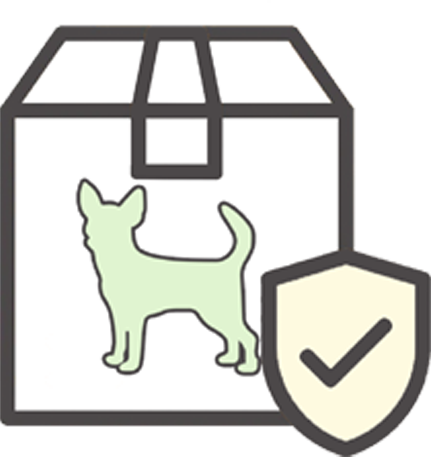The Effects of Shelter Life on Dogs
Updated On: Tuesday, November 12, 2024 11:54:10 AM America/Los_Angeles
Try as we might to make shelter life as stress-free as possible, it can still be ruff–even in the most caring, humane organizations out there. Naturally, living at a shelter means having to share space, resources, and attention. This can do a number on any dog, and it’s up to us humans to try and make post-shelter life as easy breezy as possible. So, what are some of the consequences of being a shelter dog and what can be done about them?
Photo by Madeline Bowen
Stress
It should come as no surprise that life at the shelter can heighten stress. Loud noises, cramped quarters, and an inconsistent lifestyle can be difficult for routine loving canines. Stress can manifest itself in a number of ways including appetite loss, neediness, hyperarousal, and pacing. Many of these behaviors are a response to erratic or chaotic environments. Instilling a routine as well as creating a calm space can go a long way in reducing canine stress.
Separation Anxiety
Some pooches, especially adult doggos, may struggle with separation anxiety if they’ve landed at the selter after living with a human. It’s entirely understandable that a dog would be dealing with anxiety after being put into a stressful environment without the comfort of their most familiar companion. While cuddles and treats are encouraged, it’s critical not to give in to anxiety-driven behavior. Instead, encourage self-driven play times with interactive toys, and develop a routine that incorporates affection regularly. That way you’re not dealing with the guilt of not giving in to demands for attention, and your fur baby will learn that they will get the love that they want—just not 24/7.
Aggression
Crowded spaces and loud noises–the shelter environment doesn’t exactly make a dog feel safe. While it’s untrue that dogs in shelters are naturally aggressive, difficult environments can make even the friendliest canine feel temporarily defensive. Rather than interpreting aggression as meanness, consider what’s causing the behavior. When in doubt, it’s always best to speak with a rescue representative to get a better understanding of the aggression and how it might play out in your home.
Find out more about what you can do as a dog pawrent to help adopted fur babies settle into their new fur-ever home here! In addition to developing a routine and providing plenty of love, making sure that your pooch has their own essentials allows canines to feel secure. Help a dog adjust to their new environment with a real grass pee pad like DoggieLawn! Having their very own pet potty that’s easily accessible will make their environment feel safer and less overwhelming.


